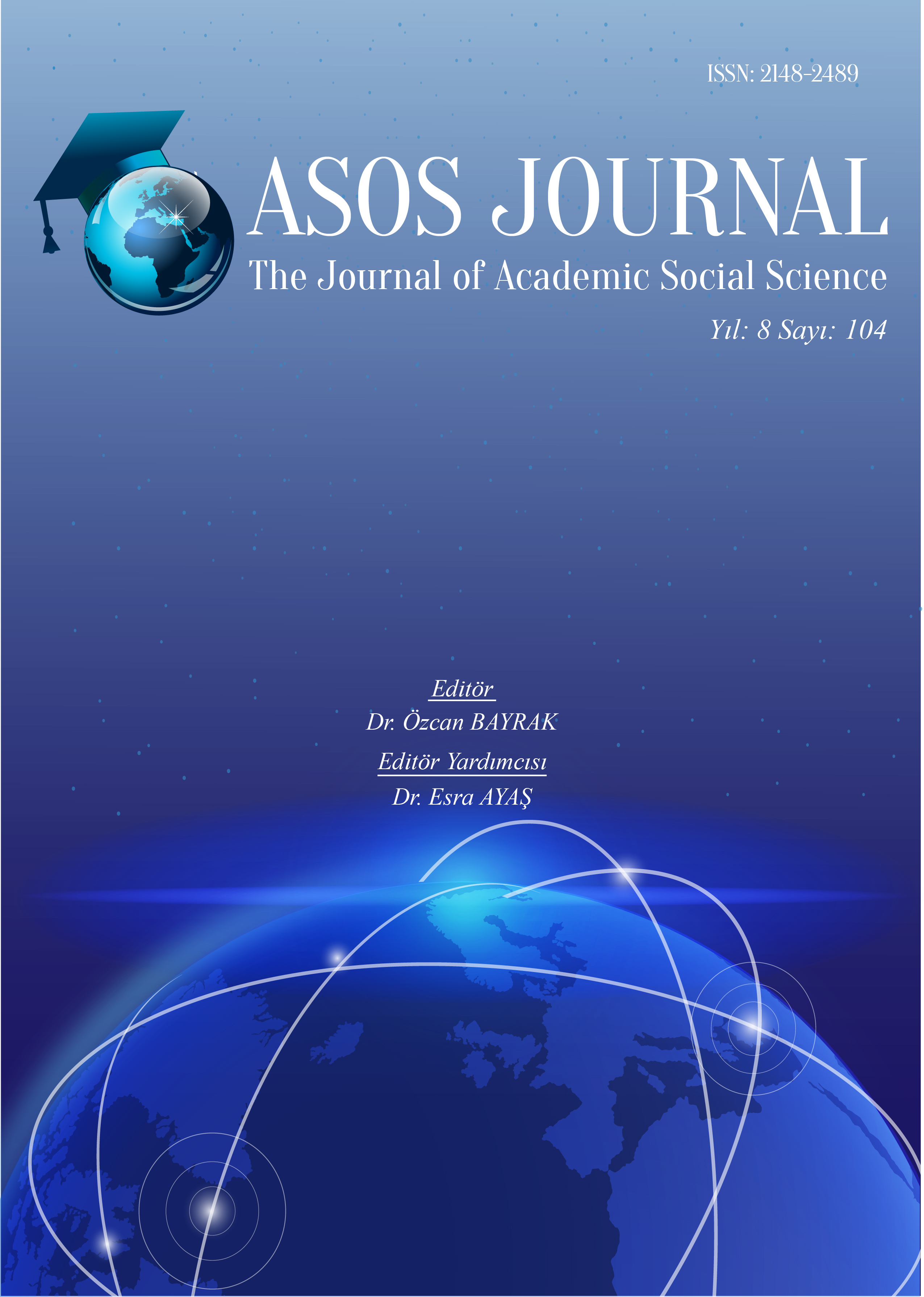Author :
Abstract
Modern devlet yapısının şekillenmeye başladığı Erken Modern Dönemde tartışılan en önemli konulardan biri de zulüm kavramının ne olduğu, nasıl bir mahiyet gösterdiği ve onun ideal bir devlet adamı tarafından benimsenip benimsenmediği konusu üzerinedir. Neredeyse tüm Orta Çağ döneminde ilahi, soyut ve ruhsal bir mahiyete sahip olduğuna inanılan zulüm kavramı Tanrı’nın ilahi planı içerisinde düşünüldüğünden üzerine çok fazla çalışma yapılmamış fakat Aquinolu Tommaso ile bu düşünce büyük bir kırılmaya uğrayarak kısmen de olsa onun ne olduğu anlaşılmaya çalışılmış ve kan, şiddet ve vahşet dışında bir durum doğurmadığından zulüm uzak durulması gereken bir kavram olarak görülmüştür. Sonrasında, anlamı ve kapsamı bakımından ciddi tartışmalara neden olan zulüm birçokları tarafından kötü bir kavram olarak görülmüş olsa da İtalyan Savaşlarına tanıklık etmiş olanlar onun hükümdarlar ve devletler adına ne denli faydalı ve işlevsel bir özelliğe sahip olduğunu fazlasıyla tecrübe etmişlerdir. Dolayısıyla, Niccolo Machiavelli, Francesco Guicciardini ve Paolo Rosello gibi isimler bu kavrama önemli yer atfederken dini devlet yapısından ayırmayan birçok geleneksel bakış açısına sahip düşünür için zulüm ve zalimlik ideal bir hükümdara yakışmayan aşağılık bir elbiseden başka bir şey değildir. İşbu çalışmada da bu tartışma ele alınarak zulüm kavramının geçirmiş olduğu dönüşüm süreci ele alınacaktır.
Keywords
Abstract
One of the most important topics disscussed during the Early Modern Period in which the modern state structure started to emerge is “what the concept of cruelty is”, “how its nature appears” and “whether it is adopted by an ideal statesman”. Since the concept of cruelty, which was believed to have a divine, abstract and spiritual characteristic almost througout the entire Medieval Age, was considered in terms of the divine plan of God, it was not studied too much. However this consideration changed dramatically by Tommaso d’Aquino and then it was partially tried to be understood. It was seen as a concept which should be avoided as it did not cause anything but blood, violence and brutality. Later on, the cruelty caused many disputes in terms of its meaning and context. Even though it was seen as a awful concept by many thinkers, those who witnessed the Italian wars experienced to what extent the oppression has beneficial and functional characteristics for the sake of the rulers and states. Therefore, while the thinkers like Niccolo Machiavelli, Francesco Guicciardini and Paolo Rosello attributed importance to this concept, for many philosophers who had a traditional point of view, oppression and cruelty was nothing more than a despicable clothing that does not suit an ideal ruler. In this study herein, the discussion mentioned above will be made and the transformation process which the concept of oppression has been through will be addressed.
Keywords
- Augustine, A. (1999). İtiraflarım. (D. Pamir, Çev.) İstanbul: Kaknüs.
- Bodin, J. (1955). Six Books of the Commonwealth. (M. Tooley, Dü.) Oxford: Basil Blackwell.
- Collins, R. (1974). Three Faces of Cruelty: Towards a Comparative Sociology of Violence. Theory and Society, 1(4), 415-440.
- Dostoyevski, F. (2008). Ölü Evinden Anılar. İstanbul : Türkiye İş Bankası Yayınları.
- Efendi, K. A. (1974). Ahlak: Ahlak-ı Ala'i. (H. Algül, Dü.) İstanbul: Tercüman.
- Hacip, Y. H. (1988). Kutadgu Bilig. (A. Dilaçar, Dü.) Ankara: TTK.
- Haldun, İ. (1996). Mukaddime. (Z. K. Urgan, Çev.) İstanbul: Millî Eğitim Bakanlığı.
- Huizinga, J. (1997). Ortaçağın Günbatımı. (M. A. Kılıçbay, Çev.) İstanbul: İmge.
- John, S. (1990). Policraticus. Cambridge: Cambridge University Press.
- Kitab-ı Mukaddes. (2009). İstanbul: Kitab-ı Mukaddes Şirketi.
- Montaigne, M. d. (2018). Denemeler (Cilt 2). (E. Sunar, Çev.) İstanbul: Say.
- Mumcu, A. (2007). Osmanlı Hukukunda Zulüm Kavramı. Ankara: Phoenix Yayınevi.
- Nizamülmülk. (2009). Siyasetname. İstanbul: Türkiye İş Bankası Yayınları.
- Platon. (2005). Devlet. (C. S. Atayman, Çev.) İstanbul: Bordo&Siyah.
- Seneca. (2019). Hoşgörü Üzerine - Ruh Dinginliği Üzerine. (B. Demiriş, Çev.) İstanbul: Doğu& Batı.
- Sznaider, N. (1996). Pain and Cruelty in Socio-Historical Perspective. International Journal of Politics, Culture, and Society, 10(2), 331-354.
- Wilde, O. (1974). The Picture of Dorian Gray . Oxford: Oxford University Press.
- Yesevî, H. A. (2017). Dîvân-ı Hikmet. (M. Tatcı, Dü.) Ankara: Hoca Ahmet Yesevi Uluslararası Türk-Kazak Üniversitesi.





